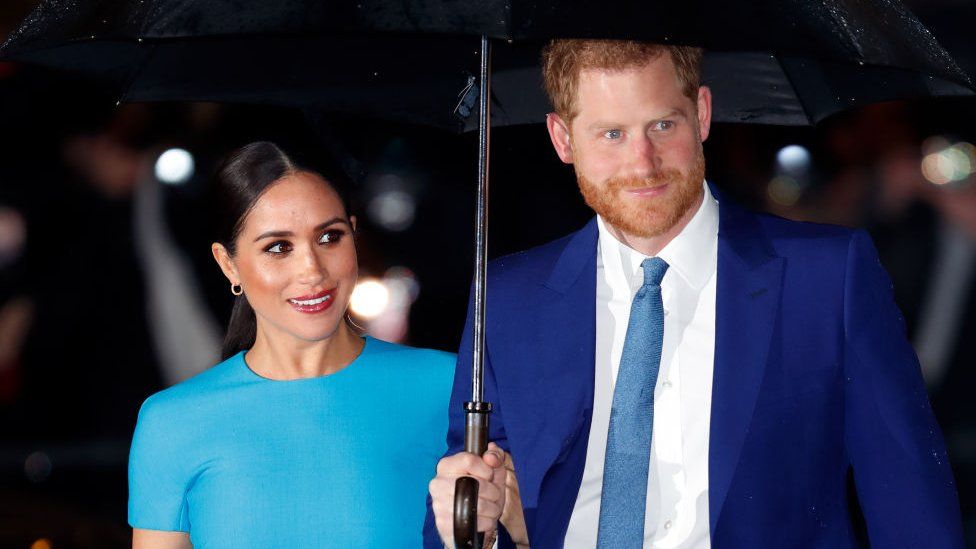ARTICLE AD BOX
 Image source, Getty Images
Image source, Getty Images
Prince Harry and Meghan Markle have lived in the US since early 2020.
By Bernd Debusmann Jr
At the federal court in Washington DC
A federal judge has begun hearing arguments in a case that hopes to make public the Duke of Sussex's US immigration records.
The lawsuit, from the conservative Heritage Foundation, seeks to compel the government to release the records to show whether drug use was disclosed.
Prince Harry, 38, has publicly admitted to using cocaine, marijuana and psychedelic mushrooms.
A decision in the case, being heard in Washington DC, may take weeks.
Application forms for US visas specifically ask about current and past drug use.
Drug use can lead to non-immigrant and immigrant visa applications being rejected, although immigration officers have discretion to make a final decision based on a number of factors.
It is not clear what visa Prince Harry used to enter the US. His wife, Meghan Markle, is a US citizen. The couple have lived in California since 2020.
At the heart of the Heritage Foundation's lawsuit is an admission by Prince Harry, in his memoir Spare, that he repeatedly used drugs as a teenager in the UK and as an adult.
In the lawsuit, the Heritage Foundation argues that "widespread" coverage of the duke's admitted drug use calls into question whether the government properly followed immigration law when it admitted him into the US, and whether he was given preferential treatment.
Current or past drug use could, in theory, make one inadmissible to the US.
The judge in the case, Carl Nichols, will first have to determine whether Customs and Border Protection (CBP) must expedite the process of finding relevant documents.
Then, he will have to determine whether it is in the public interest to make the immigration documents - or parts of them - available.
Nile Gardiner, a former aide to Margaret Thatcher who works as a foreign policy analyst at the Heritage Foundation, told BBC News last week that the foundation believes the case is "symbolically important".
"If Prince Harry was treated differently than anyone else applying, I think it would undermine confidence in the US immigration system and how it is enforced," he said.
"It's important that US officials are seen to be applying the law robustly, effectively and fairly," Mr Gardiner added. "Otherwise the system doesn't work at all."
Court documents filed by the Heritage Foundation cite a number of examples of British celebrities being refused entry or returned to the UK.
In 2010, for example, the documents said musician Pete Doherty was refused entry at an airport in New York and sent back to the UK, despite having a visa. Mr Doherty has several prior drug convictions.
In 2014, celebrity chef Nigella Lawson was prevented from boarding a flight from the UK to Los Angeles after admitting to taking cocaine "two times in my life" in evidence during an unrelated court case.
A spokeswoman for the US embassy in London said at the time: "There are several ways of legally travelling into the United States and Ms Lawson has been invited to come to the embassy and apply for a visa for travel to the US." Ms Lawson was eventually granted a visa.
The Department of Homeland Security (DHS), for its part, has argued that there is no need for the rapid release of Prince Harry's documents.
It has also argued that that there was nothing to suggest "widespread" public interest in seeing the immigration documents.
The US case is separate from an ongoing civil case in the UK in which Harry has sued Mirror Group Newspapers over allegations of phone hacking.

 2 years ago
37
2 years ago
37








 English (US) ·
English (US) ·